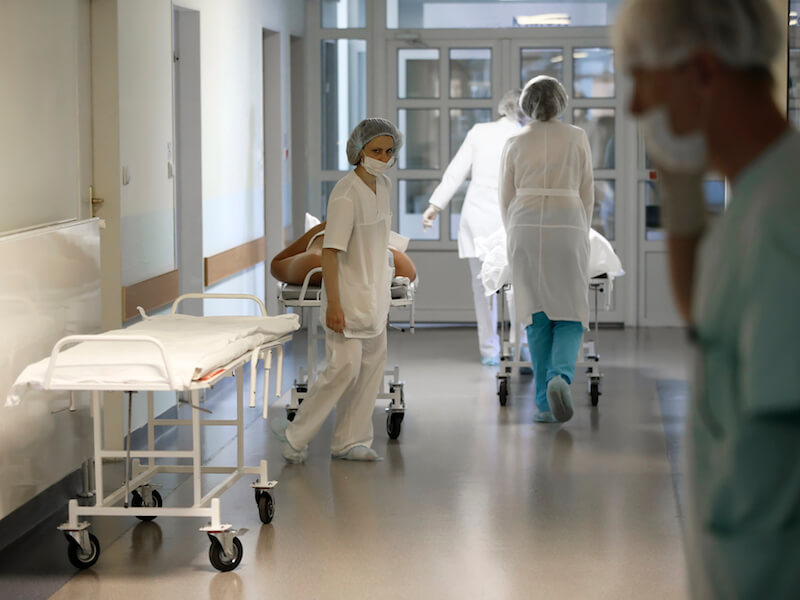
Having to go to the ER can cost you time off work, not to mention personal pain. What if you could lessen ER trips and dramatically reduce your chances of depression, anxiety, and even dementia.
Using your hearing aid can be the difference between living an active healthy life and taking many trips to the ER, according to some new studies.
The Study
This University of Michigan study assembled participants which ranged from 65-85. Severe hearing loss was a widespread condition between them. But out of all of those who participated, only 45% of them used their hearing aids regularly.
This is in agreement with similar studies which have revealed that only about 30% of people who have hearing aids actually use them.
Of the 585 people in the hearing aid group, 12 fewer people found themselves in the ER or non-elective hospital stay.
This might seem like a moderate number. But statistically, this is substantial.
And there’s more. They also found that those who used their hearing aids spend, on average, one fewer day in the hospital. They were more likely to show up for regular appointments with their doctors, which most likely decreased their time in ER.
How Can Emergency Care Visits be Reduced by Using Hearing Aids?
First for the obvious one. You wouldn’t be as likely to need emergency care if you are keeping up on your health.
Also, people who wear their hearing aids remain more socially involved. When a person is socially connected they are normally more committed to keeping keep their appointments and also have more support from family and friends getting to the doctor.
And driving is less dangerous when you can hear, so you will have more confidence if you are bringing yourself to your appointment.
One study carried out in the U.S. revealed that depression is twice as likely in individuals who don’t wear their hearing aid. Health concerns linked to lack of self care is often an outcome of depression.
Thirdly, numerous studies have revealed that wearing your hearing aid can reduce the risk of falling and cognitive decline. The region of the brain that’s responsible for hearing will start to decline from lack of use as hearing declines. The rest of the brain is eventually affected. The disorientation associated with falls and symptoms of dementia are often the result.
Falls are one of the leading causes of death among people over 65, and the consequent hospitalizations last two times as long.
Hearing aids minimize visits to the ER for these reasons amongst others.
Why do so Many Individuals Avoid Wearing Hearing Aids?
There’s truly no good reason.
Fear of looking old is one major reason why some individuals don’t wear their hearing aids. 25% of people over 65 and 50% of people over 75 have hearing loss and yet this notion of looking old with hearing aids persists. Hearing impairment isn’t rare. It’s common. And due to the rise in noise pollution and earbud usage, hearing loss is on the rise among people in their twenties.
Ironically, continuously asking people to repeat what they said often makes a person appear a lot older than they are.
Some people reference the costs of hearing aids. However, financing is possible for hearing aids and costs have come down in the past few years.
Lastly, some don’t enjoy the hearing experience with their hearing aid. This can often be corrected by simply consulting your hearing specialist to find out how to more successfully use your hearing aid in different settings. Hearing aids don’t always fit and sound optimal on the first fitting and sometimes need several tries.
If something is preventing you from wearing your hearing aid, it’s time to make an appointment with your hearing specialist.






